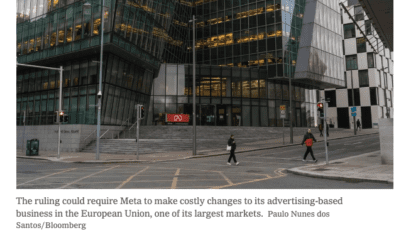The European Court of Justice issued a landmark ruling on Tuesday (5 December) that is set to facilitate the imposition of fines for infringements of the General Data Protection Regulation (GDPR).
The European Court of Justice (ECJ) put out a verdict that will make it easier for data protection authorities to sanction infringements of EU data protection rules and will likely result in higher fines on average.
The verdict at the EU level results from two national courts from Lithuania and Germany asking for guidance on the conditions for sanctioning data controllers.
One of the two cases sees Deutsche Wohnen, a German real estate company, coming up against Staatsanwaltschaft Berlin, the Public Prosecutions Office of Berlin. In this case, the Berlin Commissioner for Data Protection and Freedom of Information imposed a €14.5 million fine in 2020.
“With its judgement in the ‘Deutsche Wohnen’ case, the ECJ has established fundamental requirements for the imposition of fines against companies for GDPR violations,” German Attorney-at-Law Stefan Hessel told Euractiv.
Meanwhile, in Lithuania, the National Public Health Centre under the Ministry of Health was contesting a fine of €12,000 imposed on it due to “a mobile application for registering and monitoring the data of persons exposed to COVID-19”, the document adds.
Two months ago, the German government set the course with a new strategy to utilise data more effectively. However, recent surveys have shown that both the public and businesses lack trust in the use of digital data.
“Today’s ECJ landmark decision on GDPR administrative fines in the case ‘Deutsche Wohnen’ strengthens enforcement of the EU GDPR as it lowers requirements for imposing fines on legal entities,” said Jan Spittka, partner and GDPR expert at global law firm Clyde & Co.
According to today’s decision, a fine for infringement on data controllers can be imposed when “that infringement was committed wrongfully, that is to say, intentionally or negligently”.
“This threshold …














